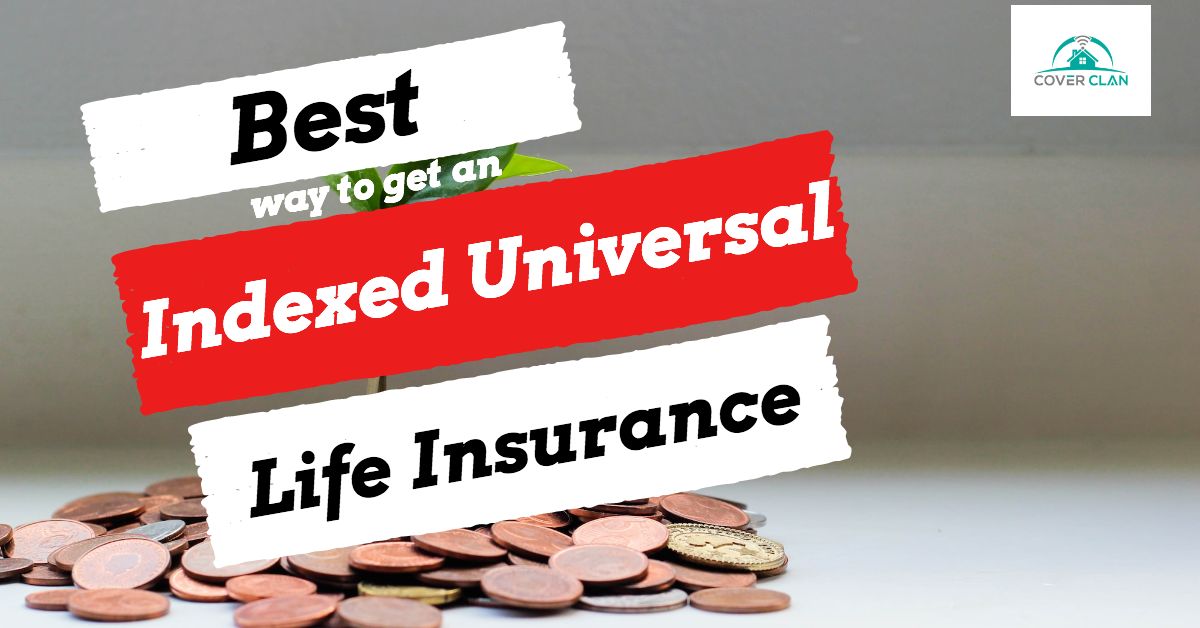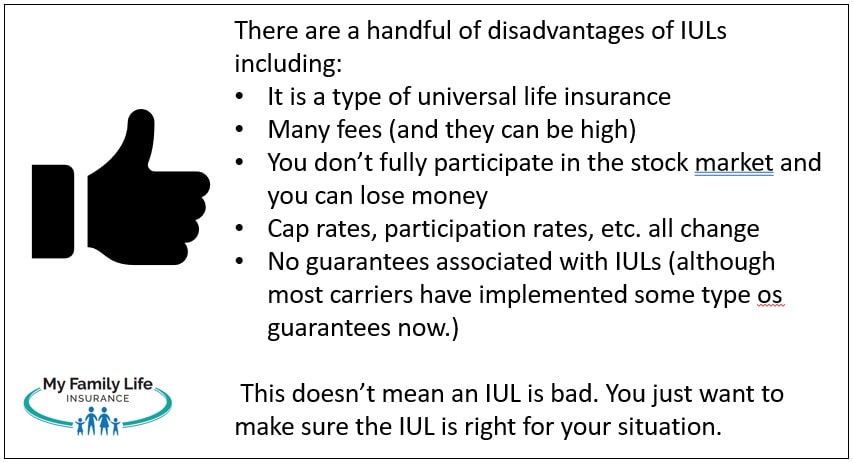All Categories
Featured
Table of Contents
Indexed Universal Life (IUL) insurance coverage is a type of irreversible life insurance policy that combines the functions of standard universal life insurance policy with the potential for cash value growth connected to the efficiency of a stock exchange index, such as the S&P 500 (IUL investment). Like other forms of irreversible life insurance policy, IUL provides a death benefit that pays to the recipients when the insured passes away
Money value build-up: A part of the premium repayments enters into a cash money value account, which earns interest gradually. This money worth can be accessed or borrowed versus throughout the insurance policy holder's lifetime. Indexing option: IUL policies provide the possibility for cash money value growth based on the efficiency of a stock market index.
What should I look for in a Iul Retirement Planning plan?
Similar to all life insurance policy items, there is also a collection of threats that insurance holders need to recognize before considering this sort of plan: Market risk: Among the key risks related to IUL is market risk. Since the cash money value development is connected to the efficiency of a supply market index, if the index does improperly, the cash money worth may not grow as expected.

Sufficient liquidity: Policyholders need to have a stable economic circumstance and fit with the exceptional repayment requirements of the IUL plan. IUL enables versatile costs payments within certain restrictions, but it's necessary to preserve the plan to ensure it accomplishes its desired goals. Passion in life insurance coverage: People that need life insurance protection and a passion in cash money value growth may locate IUL appealing.
Prospects for IUL need to have the ability to recognize the auto mechanics of the policy. IUL might not be the finest option for people with a high tolerance for market risk, those who prioritize inexpensive investments, or those with even more immediate monetary needs. Consulting with a qualified monetary advisor that can supply personalized assistance is essential prior to taking into consideration an IUL policy.
All registrants will receive a schedule invitation and web link to join the webinar using Zoom. Can not make it live? Register anyway and we'll send you a recording of the discussion the next day.
How do I cancel Iul Accumulation?
You can underpay or skip premiums, plus you may be able to adjust your survivor benefit. What makes IUL various is the way the cash money value is spent. When you get an indexed universal life insurance policy policy, the insurance provider gives a number of alternatives to pick at the very least one index to make use of for all or component of the money worth account sector of your plan and your survivor benefit.
Money value, along with potential growth of that worth via an equity index account. A choice to allocate part of the cash value to a fixed interest option.
Insurance holders can determine the portion designated to the fixed and indexed accounts. The worth of the selected index is taped at the start of the month and compared to the worth at the end of the month. If the index raises throughout the month, interest is included to the cash value.
The resulting rate of interest is added to the money worth. Some plans determine the index obtains as the sum of the adjustments for the duration, while various other plans take a standard of the day-to-day gains for a month.
How do I compare Iul Cash Value plans?
The price is established by the insurer and can be anywhere from 25% to more than 100%. (The insurance provider can also transform the take part price over the lifetime of the policy.) If the gain is 6%, the engagement rate is 50%, and the existing cash value total amount is $10,000, $300 is added to the cash money worth (6% x 50% x $10,000 = $300).
There are a variety of pros and disadvantages to consider before buying an IUL policy.: As with common global life insurance coverage, the policyholder can increase their premiums or lower them in times of hardship.: Quantities credited to the money value expand tax-deferred. The cash money worth can pay the insurance coverage premiums, allowing the policyholder to lower or stop making out-of-pocket premium repayments.
Is Indexed Universal Life Insurance worth it?
Many IUL policies have a later maturation date than other kinds of universal life plans, with some finishing when the insured reaches age 121 or even more. If the insured is still active during that time, plans pay out the death benefit (yet not usually the cash money worth) and the profits might be taxed.

: Smaller policy face values do not offer much advantage over regular UL insurance policies.: If the index decreases, no passion is credited to the cash value. (Some plans offer a reduced ensured rate over a longer duration.) Various other investment automobiles make use of market indexes as a standard for efficiency.
With IUL, the objective is to benefit from higher activities in the index.: Since the insurance business just gets choices in an index, you're not straight invested in stocks, so you don't benefit when firms pay rewards to shareholders.: Insurers charge costs for handling your cash, which can drain money value.
What happens if I don’t have Iul For Retirement Income?

For lots of people, no, IUL isn't far better than a 401(k) - IUL in regards to saving for retirement. Many IULs are best for high-net-worth people searching for ways to minimize their gross income or those that have actually maxed out their other retirement options. For everyone else, a 401(k) is a far better investment vehicle because it does not lug the high charges and premiums of an IUL, plus there is no cap on the amount you might earn (unlike with an IUL plan)
While you might not lose any kind of money in the account if the index drops, you won't make passion. If the marketplace turns favorable, the incomes on your IUL will certainly not be as high as a regular financial investment account. The high expense of premiums and charges makes IULs pricey and significantly much less affordable than term life.
Indexed universal life (IUL) insurance coverage provides cash worth plus a survivor benefit. The cash in the cash money worth account can earn interest with tracking an equity index, and with some typically assigned to a fixed-rate account. Nonetheless, Indexed universal life plans cap just how much money you can collect (frequently at less than 100%) and they are based on a potentially unstable equity index.
How does Indexed Universal Life Death Benefit work?
A 401(k) is a better alternative for that purpose since it doesn't lug the high charges and costs of an IUL policy, plus there is no cap on the amount you may earn when invested. Most IUL plans are best for high-net-worth people looking for to lower their taxed income. Investopedia does not offer tax, investment, or economic solutions and suggestions.
If you're taking into consideration acquiring an indexed universal life plan, first consult with an economic advisor that can discuss the subtleties and give you a precise photo of the real potential of an IUL plan. Ensure you comprehend just how the insurance provider will calculate your rates of interest, incomes cap, and charges that could be examined.
Latest Posts
Universal Life Insurance Questions
Best Iul Insurance Companies
Universal Underwriting